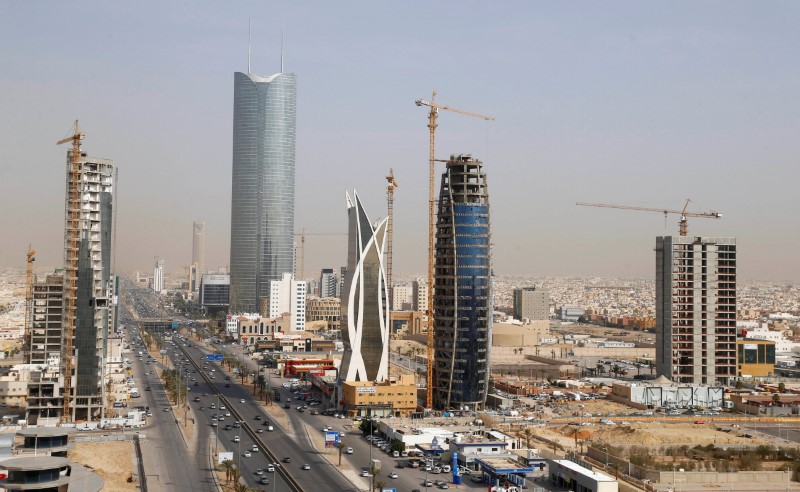By Andrew Torchia
DUBAI (Reuters) - Saudi Arabia's annual consumer price inflation jumped to 3.0 percent in January after the government introduced a 5 percent value-added tax and hiked domestic gasoline prices at the start of the year, official data showed on Sunday.
The figures suggested the new tax and more expensive fuel, part of a government drive to cut a big budget deficit caused by low oil prices, had a large impact on Saudi consumer spending power in some areas last month. Consumer prices rose 3.9 percent from the previous month in January.
Food and beverage prices jumped 6.7 percent from a year earlier, restaurants and hotels gained 5.8 percent, and transport costs soared 10.5 percent.
However, clothing and footwear prices fell 7.9 percent from a year earlier, partly because of deep discounting by retailers battling a slow economy, while housing and utility prices rose only 1.3 percent. Residential rents are exempt from the tax, and the Saudi real estate market has been slumping.
The statistics agency changed the base year for the consumer price index to 2013 from 2007 last month and adjusted the basket of goods and services, making direct comparisons with previous months difficult.
But the new tax and higher gasoline prices clearly pushed up inflation sharply. Annual inflation was just 0.4 percent in December, according to previously released data using the old basket.
Monica Malik, chief economist at Abu Dhabi Commercial Bank, estimated that if the statistics agency had continued to use the old consumer basket, annual inflation would probably have exceeded 6 percent in January - the highest level since 2010.
Among changes to the consumer basket in January, housing and utilities were given a bigger weighting, of more than 25 percent instead of 20.5 percent. The weighting of food and beverage prices was cut to under 19 percent from nearly 22 percent, and transport got a slightly smaller weighting.
The government has taken steps to ease the impact of the tax and higher fuel prices on consumption, introducing a system of cash allowances for medium- and lower-income households, and announcing an additional 50 billion riyal ($13.3 billion) package of handouts to citizens last month.
But Saudi inflation may rise further in coming months as consumer demand begins to recover from the initial shock of the tax, and as more retailers and companies raise their prices instead of absorbing additional costs.
The International Monetary Fund has forecast Saudi inflation will average 5.0 percent this year, after consumer prices fell 0.2 percent last year.
The United Arab Emirates introduced 5 percent VAT at the same time as Saudi Arabia, and data released last Thursday showed annual inflation in the emirate of Dubai rising to 2.7 percent in January from 1.5 percent in December.
The tax appears to be pushing prices up less sharply in the UAE than in Saudi Arabia because Riyadh, running a much larger fiscal deficit than the UAE and therefore more eager to raise new state revenues, did not exempt nearly as many goods and services from the levy.

The other four rich oil-exporting states of the Gulf -- Kuwait, Oman, Qatar and Bahrain -- originally planned to impose VAT simultaneously with Saudi Arabia and the UAE but have not done so, partly out of concern about the effect on inflation and living standards. They may introduce the tax as soon as in 2019.